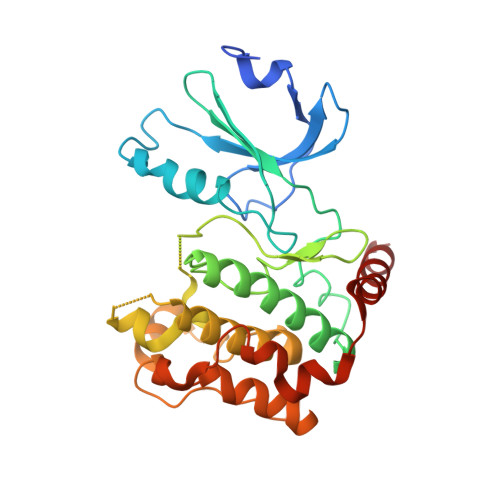Structural insights into regulatory mechanisms of MO25-mediated kinase activation.
Hao, Q., Feng, M., Shi, Z., Li, C., Chen, M., Wang, W., Zhang, M., Jiao, S., Zhou, Z.(2014) J Struct Biol 186: 224-233
- PubMed: 24746913
- DOI: https://doi.org/10.1016/j.jsb.2014.04.005
- Primary Citation of Related Structures:
4NZW, 4O27 - PubMed Abstract:
The tumor suppressor kinase LKB1 and germinal center kinases (GCKs) are key regulators of various cellular functions. The adaptor molecule MO25 not only recruits and activates LKB1 through the pseudokinase STRAD, but also may directly activate GCKs like MST3, MST4, STK25, OSR1 and SPAK. Targeting MO25 in a pathological setting has been recently studied in mouse. Yet the regulatory mechanism of MO25-mediated kinase activation is not fully understood. Here, our structural studies of MO25-related kinases reveal that MO25 binds to and activates GCK kinases or pseudokinase through a unified structural mechanism, featuring an active conformation of the αC helix and A-loop stabilized by MO25. Compared to GCKs that are directly activated by MO25-binding, activation of LKB1 has evolved additional layer of regulatory machinery, i.e., MO25 "activates" the pseudokinase STRAD, which in turn activates LKB1. Importantly, the structures of MO25α-STK25 and MO25α-MST3 determined in this work represent a transition/intermediate state and a fully activated state, respectively during the MO25-mediated kinase activating process.
Organizational Affiliation:
Institute of Biochemistry and Cell Biology, Shanghai Institutes for Biological Sciences, Chinese Academy of Sciences, Shanghai 200031, China.
















